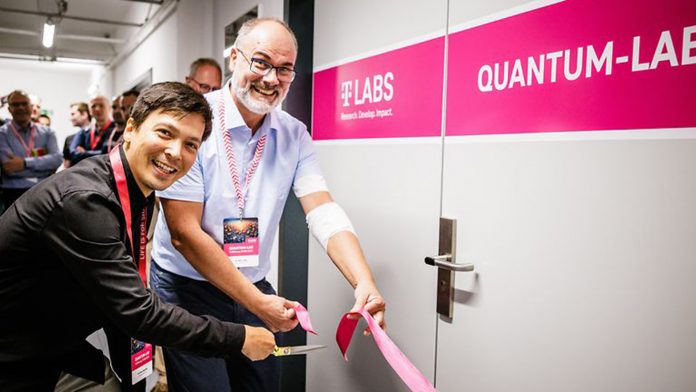Deutsche Telekom (DT) has opened an exciting new quantum research lab at its T-Labs premises in Berlin.
The quantum research lab will be dedicated to some groundbreaking research, including integrating quantum tech into commercial telecoms networks.
The company aims to develop discrete quantum communication capabilities, as well as better performing ‘ordinary’ networks.
The lab is connected to a fibre network of more than 2,000 km, connecting it to partners, including the technical Universities of Berlin, Dresden and Munich, and the Fraunhofer Institut HHI.
The progression of quantum technology
Quantum has been about to hit the big in telecoms for more than a decade.
With the opening of the new quantum research lab, it seems that incremental progress is underway.
In July, HSBC became the first bank to join BT and Toshiba’s commercial trial quantum-secured metro network, working in collaboration with Amazon Web Services (AWS). The network was installed in 2020.
The bank will trial the quantum secure transmission of test data over fibre-optic cables between its global HQ in Canary Wharf and a data centre in Berkshire, 62 km away.
The quantum research lab will focus on quantum entanglement
The main focus of the new quantum research lab will be quantum entanglement.
This includes quantum cryptography for ultra-secure communication as well as communication networks with improved latency, throughput, and resilience.
Quantum entanglement could power networks of distributed and sensory applications, creating a quantum Internet of Things.
Claudia Nemat, CTIO at Deutsche Telekom, said: “We explicitly invite the research and innovation community to join us in leveraging networks at the interface between R&D and commercial exploration like ours to prove that innovative quantum technology solutions work under real-world conditions.”
Other developments in the field of quantum technology
The opening of the quantum research lab follows SK Telecom’s (SKT) announcement that it would promote the case for a global quantum safe communications standard at an ITU Security Group meeting held in South Korea.
SKT has a long-term partnership with DT and recommends the standards should be based on a combination of quantum key distribution (QKD) and post-quantum cryptography (PQC).
In February, DT announced its role in the European Commission’s PETRUS project, which aims to develop a secure quantum communication infrastructure, EuroQCI. The operator is to coordinate the collaborative efforts across the 27 EU member states.
In March, T-Systems announced Quantum-as-a-Service to give business customers access to IBM’s quantum computing so they can develop and test use cases, with the options of dedicated training and advisory services.









